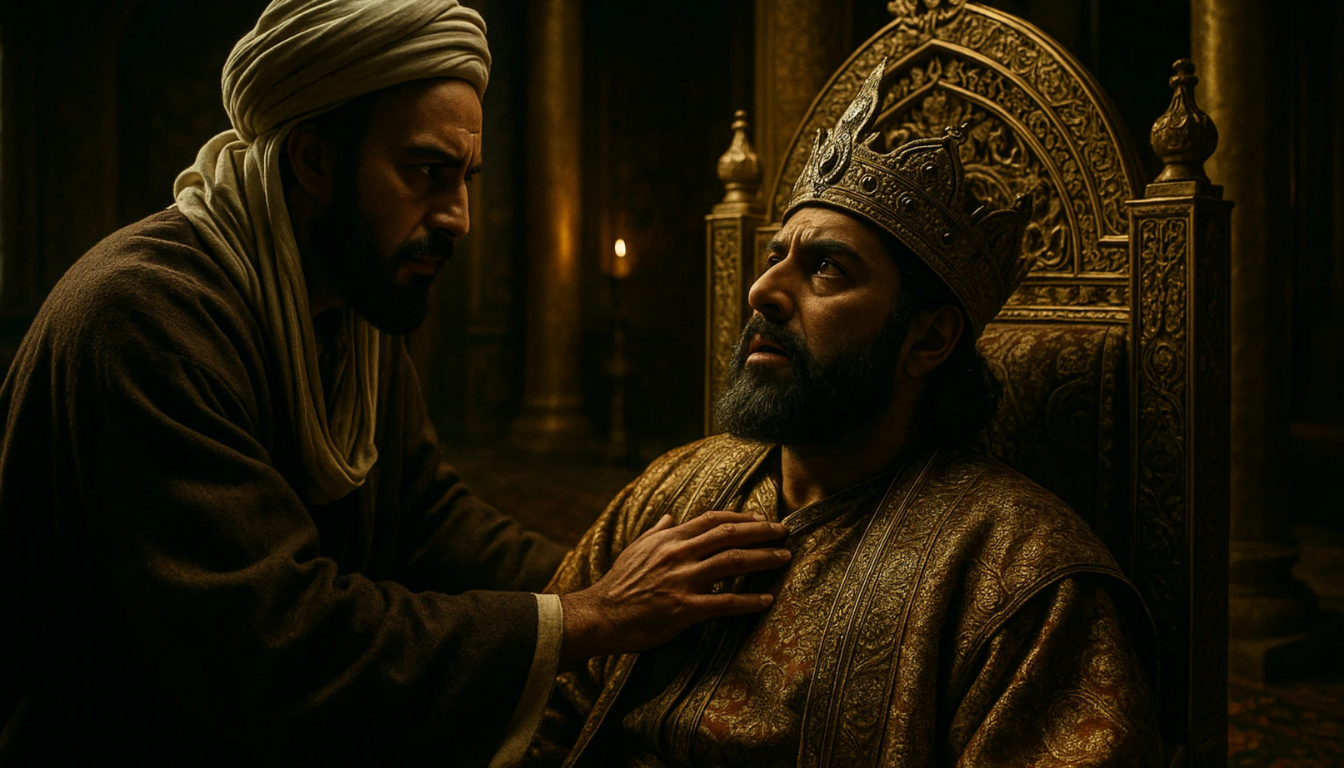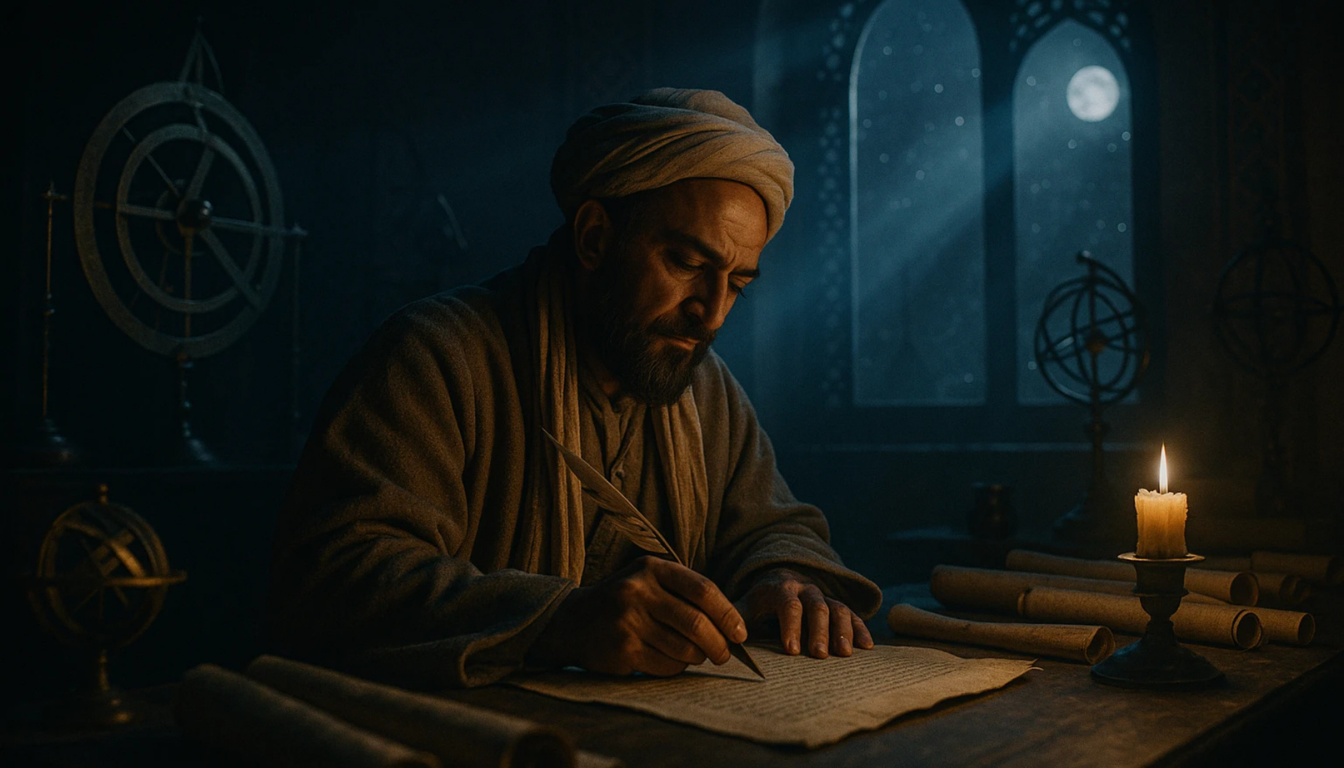Ibn Sina From Orphan to Pioneer of Medicine A Story That’ll Change How You See Ancient Wisdom
Ever wondered how a young orphan from medieval Persia became one of history’s greatest medical minds? Well, buckle up because you’re about to discover the absolutely mind blowing story of Ibn Sina, better known in the West as Avicenna
This isn’t just another boring historical account It’s the tale of a brilliant kid who lost everything, yet somehow managed to revolutionize medicine in ways that still impact your doctor visits today Honestly, his story reads like something straight out of a movie script

The Humble Beginnings When Life Dealt the Worst Cards
Picture this: you’re barely ten years old, and suddenly you’ve lost your father That was Ibn Sina’s reality around 980 CE in Afshana, near Bukhara (modern day Uzbekistan)But here’s the kicker instead of letting this tragedy define him, young Ali ibn Sina turned it into fuel for his incredible journey
His father, Abdullah, wasn’t just any ordinary guy He was a government official and scholar who had already started nurturing his son’s exceptional mind By the way, Ibn Sina was showing signs of genius even before this devastating loss The kid was memorizing the Quran by age 10 Can you imagine that kind of mental capacity?
When his father died, Ibn Sina didn’t have the luxury of a normal childhood He had to grow up fast, real fast. But sometimes, life’s hardest punches shape us into something extraordinary

The Self Made Scholar Learning Everything Under the Sun
Here’s where things get absolutely crazy Ibn Sina essentially became his own teacher We’re talking about a medieval world without Google, YouTube tutorials, or even proper libraries in most places This young man had to hunt down knowledge like a detective solving the world’s most complex case
He devoured books on
- Mathematics and geometry
- Philosophy and logic
- Natural sciences
- Islamic laws
- Medicine and anatomy
Let’s dive into something that’ll blow your mind By age 16, Ibn Sina had already mastered medicine to such an extent that established physicians were coming to him for consultations Imagine being a teenager and having experienced doctors ask for your advice

The Medical Genius Emerges Healing Rulers and Common Folk Alike
Now here’s a story that sounds almost too good to be true. When Ibn Sina was just 17, the Samanid ruler Nuh ibn Mansur fell seriously ill The court physicians were stumped they couldn’t figure out what was wrong with their king
Enter our young genius Ibn Sina diagnosed and successfully treated the ruler when nobody else could Think about that for a second a teenager succeeding where the most experienced doctors of the empire had failed!
This wasn’t luck; it was pure brilliance combined with an innovative approach to medicine that was centuries ahead of its time
As a reward, Ibn Sina gained access to the royal library, which was like giving a hungry person access to an endless buffet He absorbed knowledge faster than anyone thought possible

The Canon of Medicine A masterwork dominating medical schools for 600 years
Alright, let us discuss Ibn Sina’s magnum opus The Canon of Medicine also called
Arabic Al Qanun fi’l Tibb. This is the medical textbook that ruled European and Middle Eastern medical education for more than six centuries, not just any medical textbook.
What set it revolutionary was:
Systematic Organization
- Five comprehensive books covering theory and practice
- Detailed anatomical descriptions
- Drug classifications and preparations
- Surgical procedures and techniques
Groundbreaking Concepts
Ibn Sina introduced ideas that were absolutely mind blowing for his time
- The concept of contagious diseases
- Quarantine procedures (yes, he invented those!)
- The connection between emotions and physical health
- Systematic clinical trials for medications
Honestly, some of these concepts weren’t fully accepted in Europe until centuries later Talk about being ahead of your time!

Revolutionary Medical Discoveries That Still Impact Us Today
Let me share some discoveries that’ll make you appreciate your next doctor’s visit even more Ibn Sina wasn’t just treating patients; he was essentially creating modern medicine from scratch
Mental Health Pioneer
Long before psychology became a recognized field, Ibn Sina understood the connection between mind and body He treated what we now call
- Depression and anxiety disorders
- Neurological conditions
- Psychosomatic illnesses
Surgical Innovations
The man was using methods that one could easily imagine were from a new hospital to do his surgeries.
- Cataract removal surgeries
- Ureteral stone removal
- Perfection wound care treatments
Pharmaceutical Genius
Ibn Sina documented over 800 medicinal substances and their effects He basically created the first comprehensive pharmacology guide!

Beyond Medicine The Renaissance Man of the Medieval World
But wait, there’s more! Ibn Sina wasn’t just a medical genius he was what we’d call a “Renaissance man” today, except he lived 500 years before the Renaissance even started
Philosophy That Shaped Civilizations
His philosophical works influenced both Islamic and Christian thinkers for centuries He tackled questions like:
- The nature of existence
- The relationship between soul and body
- Logic and reasoning principles
Scientific Contributions
- Astronomy and celestial observations
- Physics and natural philosophy
- Mathematics and geometric principles
The guy was literally rewriting multiple fields of knowledge simultaneously How’s that for multitasking?

The Wandering Scholar Politics, Persecution, and Persistence
It was not the case that Ibn Sina had only scholarly achievements and was recognized by the kings. Due to political upheavals, he was forced to leave his hometown and hence he became somewhat of a wanderer, moving from one city or court to another one.
He was a doctor as well as an advisor to the different rulers of the Muslim world; however, political changes would still often make him relocate. In some occasions, he was exalted; in others, he was escaping for his life.
Despite all these trials, he still kept the habit of learning, writing, and healing. It is that kind of single, mindedness which sets legends apart from ordinary people.
Legacy That Lives On How Ibn Sina Still Influences Modern Medicine
Here’s something that might surprise you next time you visit your doctor, you’re benefiting from Ibn Sina’s work in ways you probably never realized.
Modern Medical Practices Rooted in Ibn Sina’s Work
- Systematic patient examination He created standardized diagnostic procedures
- Evidence based medicine He insisted on testing treatments before using them
- Holistic healthcare He understood that treating the whole person, not just symptoms
- Medical education structure His textbook format influenced how medicine is still taught today
Global Recognition
- UNESCO declared 1980 as “Avicenna Year”
- Medical schools worldwide still reference his work
- Hospitals and medical institutions bear his name
- His tomb in Hamadan, Iran, remains a pilgrimage site for medical students

Frequently Asked Questions
Who was Ibn Sina and why is he important?
One of the greatest figures in history is Ibn Sina (980 TO 1037 CE) He was a Persian genius who changed the face of medicine, philosophy, and science We could say that he is important for the reason that his medical encyclopedia “The Canon of Medicine” was the basis of the curriculum of the old European medical schools for more than six centuries and the methods of diagnosis that he introduced have a great impact on the present healthcare system
What were Ibn Sina’s greatest contributions to medicine?
His greatest contributions include systematic disease classification, the concept of contagious diseases, quarantine procedures, clinical trials for medications, advanced surgical techniques, and the comprehensive “Canon of Medicine” textbook that became the standard medical reference for centuries
How did Ibn Sina become so knowledgeable despite being an orphan?
Ibn Sina was largely self taught and had an exceptional memory He memorized the Quran by age 10, accessed various libraries, learned from scholars he encountered, and had an insatiable hunger for knowledge that drove him to master multiple disciplines through pure dedication and genius-level intellect
What is “The Canon of Medicine” and why was it so influential?
“The Canon of Medicine” is Ibn Sina’s five volume medical encyclopedia that systematically organized all medical knowledge of his time It was influential because it provided comprehensive coverage of anatomy, diseases, treatments, and surgical procedures in an organized, logical format that made medical education more systematic and effective
How does Ibn Sina’s work influence modern medicine?
Modern medicine still uses principles Ibn Sina established systematic patient examination, evidence based treatment approaches, understanding of contagious diseases, quarantine procedures, holistic patient care, and the structured approach to medical education that his textbooks pioneered
The Takeaway From Tragedy to Triumph
The tale of Ibn Sina is not only one of amazing feats of life but also what a single person can achieve by not letting their situation become their boundary. This kid from Persia in the Middle Ages, who was left without parents, didn’t just get past the hard times—he made a giant leap that changed the course of medicine. The whole world recognized his brilliance, and the impact was lasting.
As highlighted in Wikipedia, Ibn Sina’s works like The Canon of Medicine shaped medical science for centuries, His story reminds us that genius is not a gift from the gods alone It comes from persistence, curiosity, and the courage to keep learning when life is at its toughest.
At Careerizo, we see Ibn Sina’s journey as proof that challenges can fuel greatness. When circumstances feel overwhelming, remember Ibn Sina: the biggest setbacks can become the foundation for our greatest triumphs.

